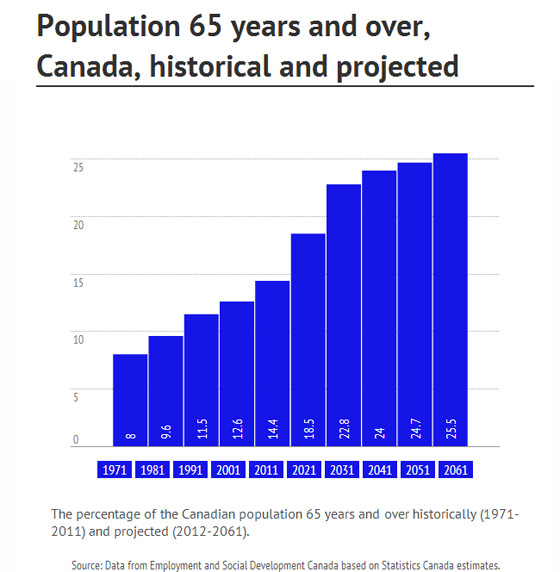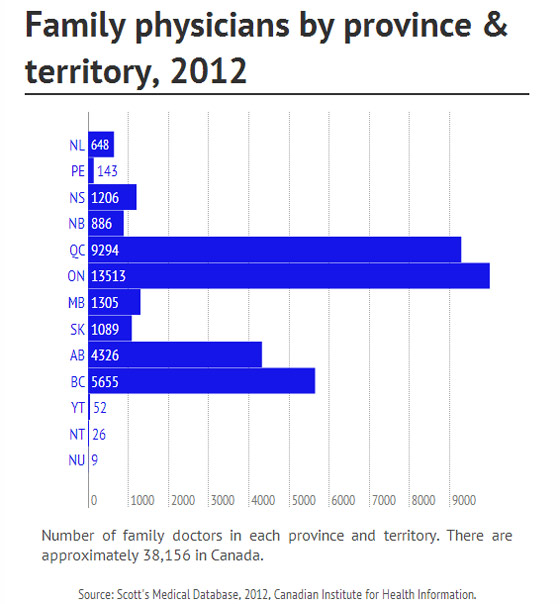Canada is experiencing a significant demographic shift as the Baby Boomer population reaches retirement age. Along with a country-wide rise in life expectancy, this shift means more people reach old age and those that do – live longer.
This reality is one that has not escaped Dr. Robert Lam, a family physician in the Geriatric Rehabilitation Program at Toronto Rehab and Toronto Western Hospital Family Health Team. He thinks it may be too late to train new geriatric specialists in time to meet the wave of aging patients.
In Canada, over half of practicing physicians are providing generalist care in family medicine and Lam believes our health system could thrive by building on this strength and optimizing our existing resources.
"Almost all medical specialties are going to be doing geriatrics," Lam says. "The key is embracing geriatrics and learning to apply it to each specialty."

Seniors make up the fastest-growing age group in Canada, according to Statistics Canada data. In 2011, an estimated 5.0 million Canadians were 65 years of age or older, a number that is expected to double in the next 25 years. (UHN)
Family doctors crucial
Family doctors provide the majority of care to elderly patients and it is crucial they have the specific skills to meet this growing population of patients. Lam is working on helping family physicians feel more comfortable tackling the needs of elderly patients. He designed a five weekend course to address common concerns and conditions facing the elderly. Lam's goal: to boost GPs confidence managing unique challenges and complex conditions.
"It's innovative because you have the same family doctors meeting over five weekends," Lam says. "That way they can take what they learn in a session, apply it to their own clinical practice, and come back the next weekend to debrief about what worked and what's still challenging."
The course provides strategies on dementia, falls, managing chronic pain, common medical problems presenting in the elderly, such as diabetes or renal disease, as well as how to approach elderly patients with failure to thrive.
Lam says course graduates have indicated that they have made changes to their clinical practice and are more confident in managing the concerns of their elderly patients.
Embracing geriatric medicine
"There aren't enough medical professionals with expertise in geriatrics," Lam says. "But if we can start getting the approximately 30,000 family doctors in Canada to work through some of their challenges around treating the elderly, that's a big step in addressing the country's healthcare needs."

There are an estimated 38,156 family physicians practicing across Canada’s 10 provinces and three territories, according to the Canadian Institute for Health Information’s 2012 data. (UHN)
Lam says one of the goals of the course is to help family physicians devise ways to keep elderly people out of the hospital and living comfortably in their own homes as long as possible. He also has
three tips for how each person can contribute to their own chances of living their remaining days in their own place:
-
Have a family doctor. Although it may be difficult to find one, don't give up (the College of Physicians and Surgeons of Ontario provides links to search for doctors accepting new patients).
-
Keep up-to-date problem and medication lists for your family doctor to help them address your needs.
-
Monitor for changes in physical or social function. For example, examine closely and question why you have given up a favourite hobby or sport. The reason may be a reversible medical problem so best to keep your family doctor aware.
Lam encourages physicians, nurses and allied health care providers to join in on the discussion of solving our geriatric care issues.
"Communication and collaboration are going to be key," Lam says. "Society is depending on us to work together to achieve real solutions."
For more information on "The Five Weekend Care of the Elderly Certificate Course" please click here.
For health-care professionals interested in learning more about Canadian Geriatrics Society please visit:
www.canadiangeriatrics.ca.
